#Mordovia
Text
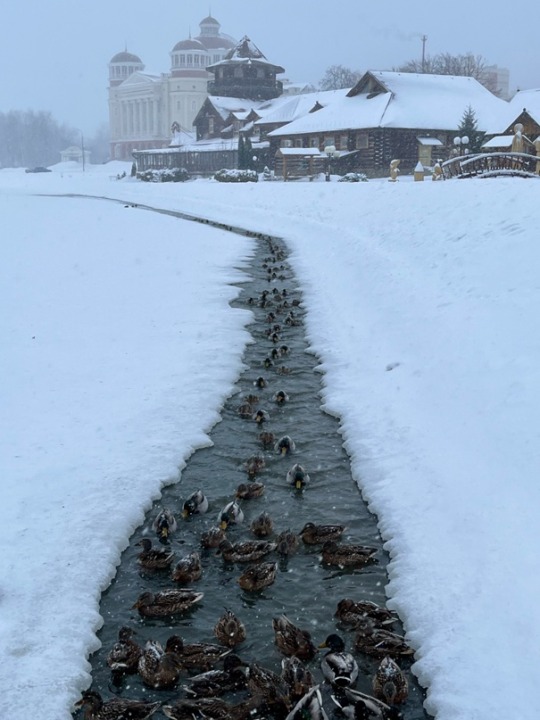
Russia.Mordovia
Россия.Мордовия
109 notes
·
View notes
Text
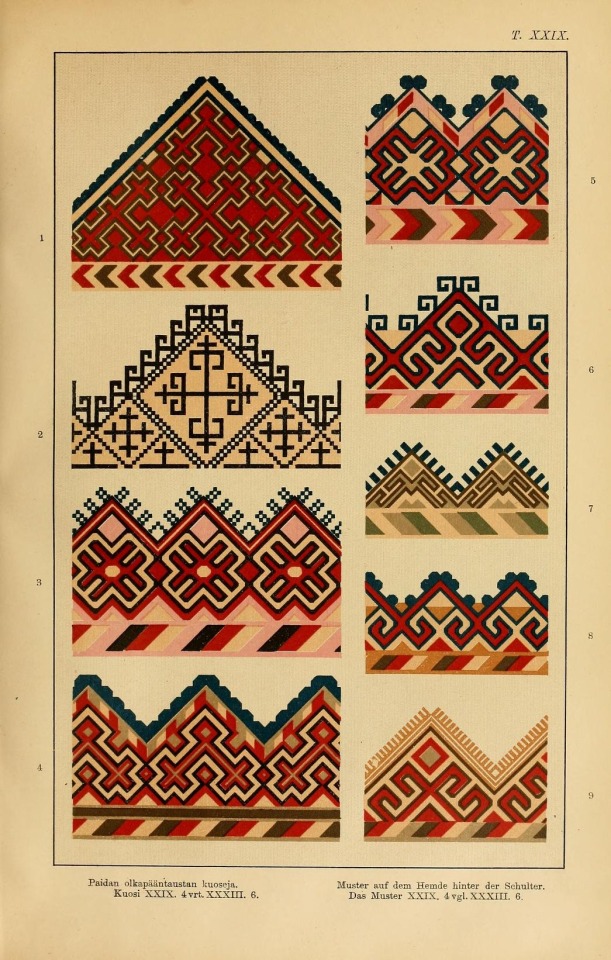
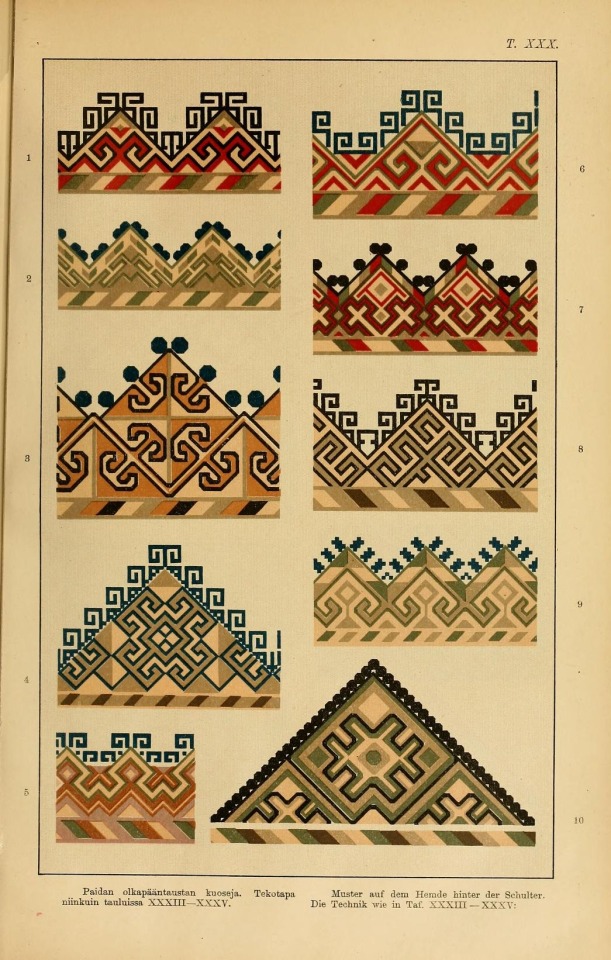

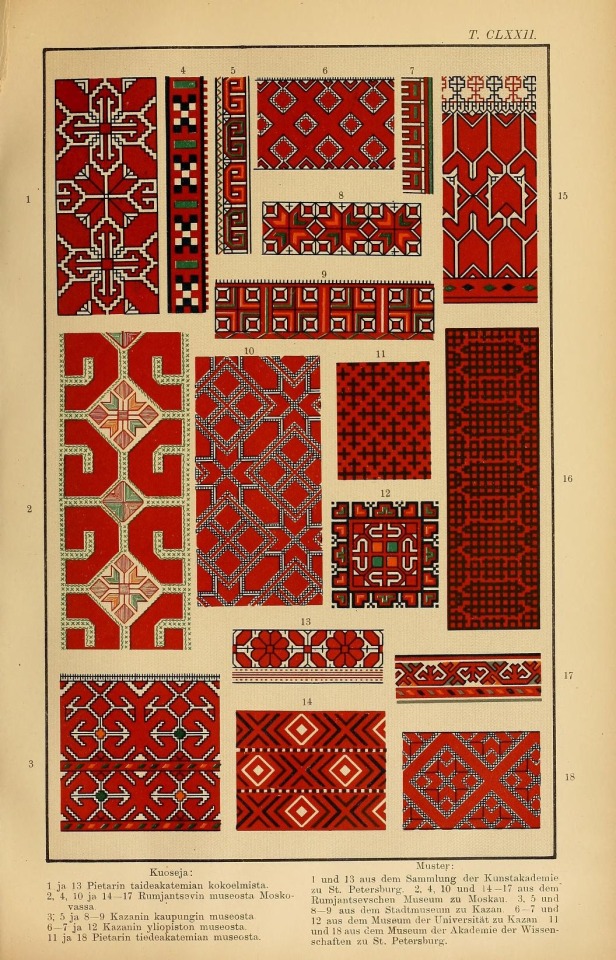
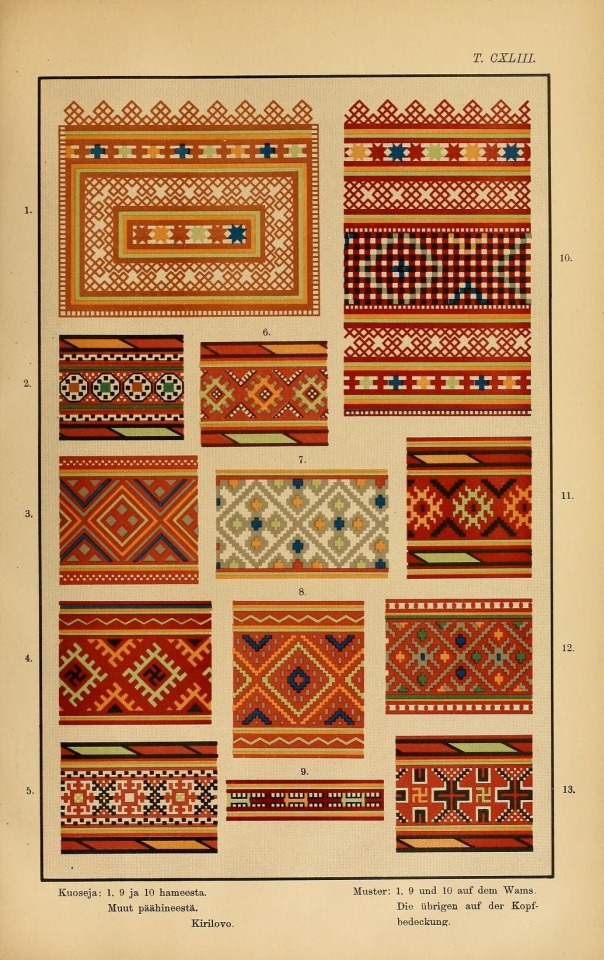

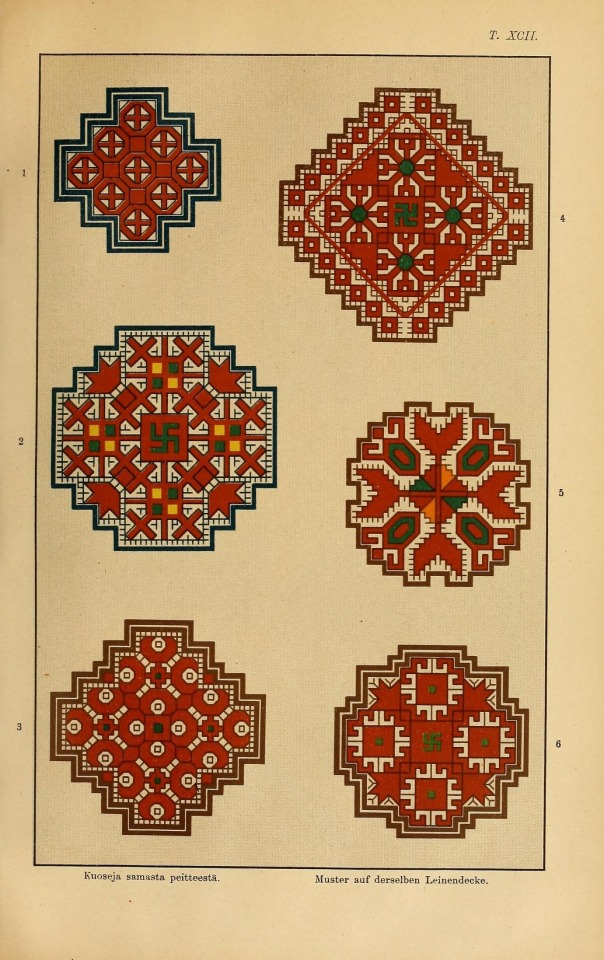

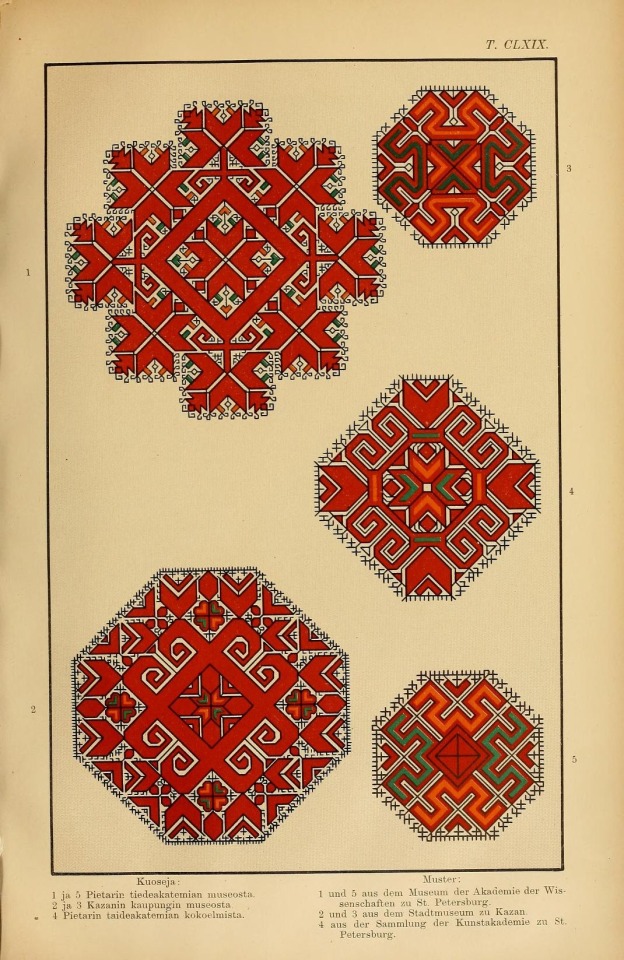

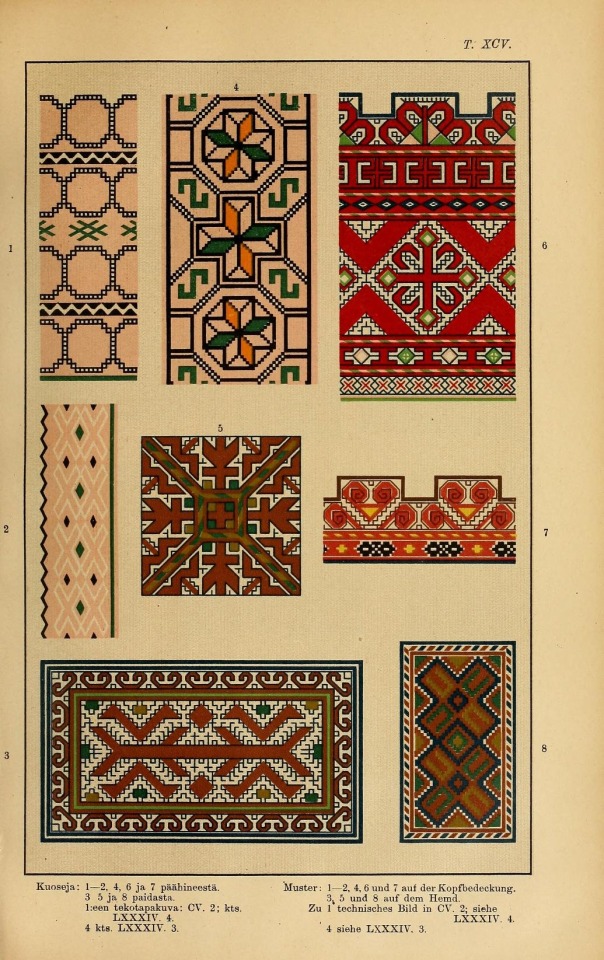

Mordovian patterns. 1899
Мордовские узоры. 1899
from Mordvalaisten pukuja kuoseja by Axel Olai Heikel
#non-russian#indigenous russian#indigenous russia#Finno-Ugric#finno-ugric#Mordovia#Мордовия#Mordovian culture#Культура Мордвины#reference
314 notes
·
View notes
Text
ХАХАХАХ, меня действительно удивляет наличие подписчиков на этом гнусном блоге. Ник моего аккаунта буквально означает "добавляет", но какие-то умники (по всей видимости–это боты) всë ещё тут. Ладно, возможно тут будут посты.
Чтобы совсем глупой не быть, кину фотки с деревни к постику. ヾ(^-^)ノ
П.с Если Галя читает этот пост и вообще нашла этот блог... Дарова! :)

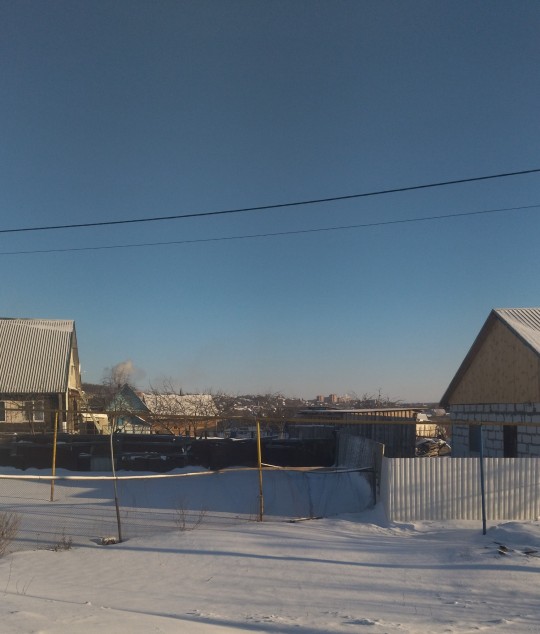
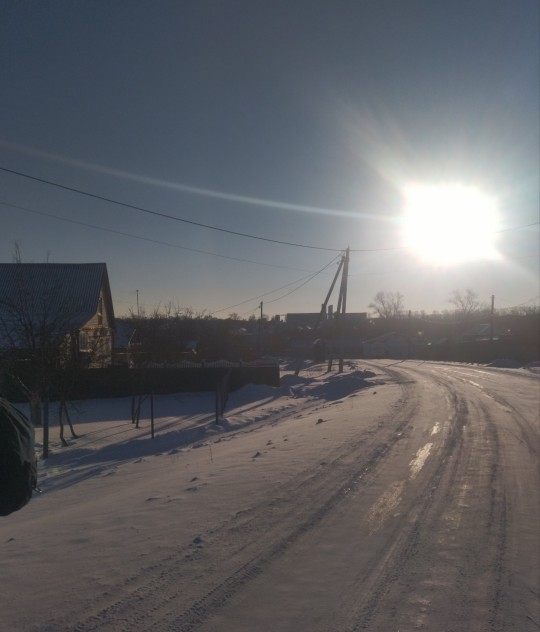
10 notes
·
View notes
Text
Traditionalism vs. Assimilation Among Indigenous Peoples of Siberia.

As is the case for many indigenous groups around the world, native peoples of Siberia struggle to fit into the modern global village while retaining their ethnic identity and cultural distinctiveness. Since the end of World War II, the indigenous peoples of Siberia have had a special legal status which allows for certain “affirmative action”-like quotas and benefits. However, the main aim of these policies was to integrate ethnic minorities into the all-Soviet people and to inculcate the “new Soviet man” mentality. Compulsory boarding schools, where children from different ethnic groups were brought together from the age of seven in a collectivist environment, often served as the hotbed of such Sovietization. The effect on native culture was disastrous. But, as James Forsyth in his A History of the Peoples of Siberia points out, “Russification began even before this, in kindergartens, where most nurses and teachers were Russian speakers. Even where some of them were natives, however, there were cases when children or the nurses themselves were reprimanded for using their native language” (here the parallels with Native North American languages are obvious). In the Soviet Union, it was believed that minority languages and cultures would die out under communism, and that “nationalism can only be bourgeois”. Since the fall of the Soviet Union, a number of new laws have been adopted whose goal is to preserve ethnic distinctiveness of indigenous peoples. But can the tables be turned?
#Adygea#Altai Republic#Bashkiria#Buryatia#Chechnya#Chuvashia#Dagestan#Ingueshtia#Kabardino-Balkaria#Kalmkia#Karachay-Cherkessia#Karelia#Khakassia#Komi Republic#Mari El#Mordovia#North Ossetia-Alania#Sakha Republic#Tatarstan#Tuva#Semi -autonomous regions#ethnic languages#Udmurtia#indigenous groups#russian language
5 notes
·
View notes
Text
Beautiful art from Россия
Evgeny Balakshin (Евгений Геннадьевич Балакшин) is born in Saransk, Mordovia, Russia, in 1962. He is a graduate of the Kharkov Art and Industry Institute, and a member of the Union of Artists of Russia.He is part of the Russian realistic school of painting, and known for his use of light and rich use of colours. He has worked and exhibited in France, England, Spain, Portugal and America. His works are included in the Mordovia Republican Museum of Fine Arts.

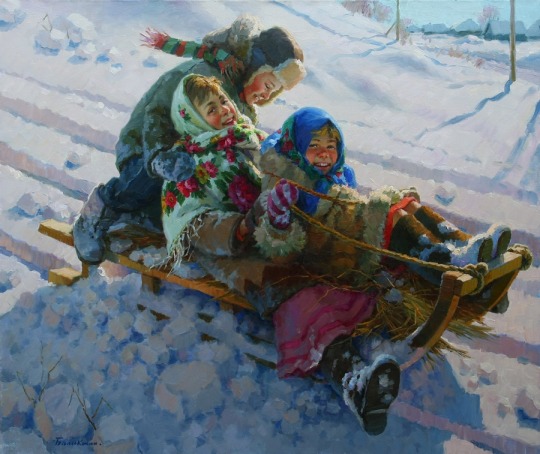
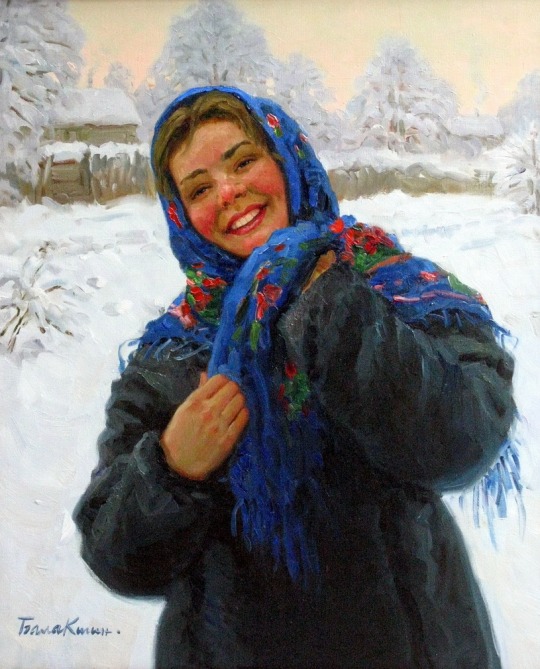




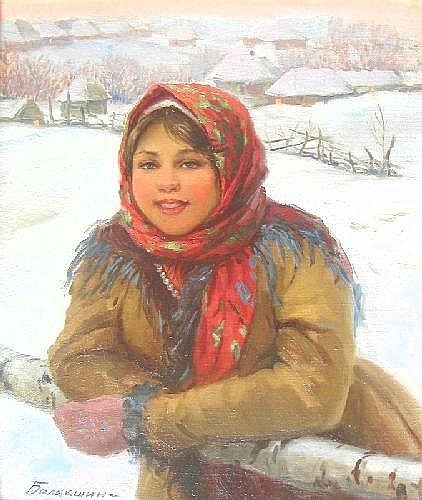
#inspiration#daily inspiration#Evgeny Balakshin#Евгений Геннадьевич Балакшин#Mordovia#Russia#russian art#Russian realistic school#painting#artworks#traditional art#art#magazine#online magazine#new magazine#the bespoke magazine
1 note
·
View note
Text
El infierno de Brittney Griner en el gulag ruso de Mordovia: esclavitud y torturas hasta el suicidio
El infierno de Brittney Griner en el gulag ruso de Mordovia: esclavitud y torturas hasta el suicidio
Expertos y antiguos presos que han pasado por la Colonia Penal Femenina IK-2 revelan las atrocidades que se producen en esta prisión soviética.
Borja Sánchez @Borja_Sz_Rojo
Poco se sabe desde que Brittney Griner fue trasladada a la Colonia Penal Femenina IK-2 en Mordovia, Rusia. Un movimiento que se produjo en secreto y del que su defensa solo tuvo noticias varias semanas después de haberse…

View On WordPress
0 notes
Note
Love your siberian OCs! Have you already made/have considered making Finno-Ugric (Sami, Komi, Karelia, Mordovia) or Samoyedic (Nenets, Enets, Selkup) OCs?
I've drawn Sami here before (I like her design but I think I would probably tweak it a bit next time I draw her 🤔) But I do have Nenets and Komi in the works! Slowly working towards a continuation of my Siberian Squad post with even more minority nation-tans, and this is a sketch page of concepts for Nenets and Komi!

#Ive gotten an ask about komi before but i didn't really like my first attempt bahaha#and i do wanna work on the selkups one day to give ket his friend...#historically inaccurate hair is historically inaccurate#hws nenetsia#hws komi republic#i still need to draw a detailed drawing of komis features...#hetalia#ask#anonymous#aph komi republic#hetalia ocs
88 notes
·
View notes
Photo


Vintage postcards of RSFSR’s autonomous regions. Each postcard has the emblem, flag and traditional pattern of a republic. Published in 1967.
The following are available (in the order they’re pictured above):
Mari-El - Udmurtia
Daghestan - Mordovia
Kabardino-Balkaria - Komi
North Ossetia - Bashkiria
Price $5/ea + $5 shipping
Message me!
How to buy. Other items in my shop. I combine shipping if you buy more than one item.
184 notes
·
View notes
Text

Sychkov Fedot Vasilyevich (1870-1958) "Cavalry Guard with a purebred horse stallion." 1898.
Canvas, oil, 60×53.2 cm.
In the lower right corner the author's signature and date: "Sychkov 1898", at the bottom left are fragments of the author's inscription, which is not subject to reliable reconstruction due to numerous losses of both entire letters and individual elements of the preserved signs.
In the history of domestic painting by F.V. Sychkov entered as the author of numerous compositions on the themes of peasant life, and so far samples of the equestrian genre have not been mentioned by any of the researchers of the master's work in the context of his pictorial and graphic heritage.
Nevertheless, in favor of the authorship of F.V. Sychkov can be evidenced by: the nature and content of the signature; a high level of painting performance; the time of creation of the painting (which coincides with the period of Sychkov's training at the Imperial Academy of Arts); the fact of his studies in the class of P.O. Kovalevsky - one of the brightest representatives of the battle (and in particular - equestrian) genre of the last third of the XIX century, and even the possible secondaryity of this composition in relation to the photographic original (even before entering the St. Petersburg School of Encouragement of Arts Sychkov performed portraits from photos).
Expert opinion of the VKhNRC named after Ak. I.E. Grabar (T.P. Goryacheva) from 09.04.1997.
Painter, graphic artist. In 1892-1895 he studied at the Drawing School of the Society for the Encouragement of Arts under Y.F. Tsionglinsky, in 1895–1900 - at the Higher Art School of Painting, Sculpture and Architecture at the IACH in the workshops of N.D. Kuznetsova and A.O. Kovalevsky. At the same time, he took private lessons from I.E. Repina. In 1908 he made a trip to Germany, Italy, Austria, France. After the October Revolution of 1917, he lived in Mordovia, in the village of Kochelaevo, the city of Narovchat, in 1956 he settled in Saransk. Sychkov's works are in many museum collections, including the State Publishing Committee, the Mordovian Republican Museum of Fine Arts named after S.D. Erzi in Saransk, Ekaterinburg Museum of Fine Arts.
Litfund
19 notes
·
View notes
Text
League of Free Nations: Indigenous activists from Russia to fight for independence from Moscow

Kalmyks in Elista, Republic of Kalmykia. Source: Wikipedia
2022/05/24 - 00:00 • INTERNATIONAL, RUSSIA, RUSSIAN AGGRESSION
Article by: Christine Chraibi
Indigenous activists from Russia, representing six national movements, have announced the creation of the League of Free Nations– a political platform for the decolonization of indigenous peoples in the Russian Federation and the acquisition of each nation’s sovereignty.
With the outbreak of the Russo-Ukrainian war on 24 February, 2022, many Russian citizens of indigenous nations have been wittingly or unwittingly drawn into the ranks of the Russian army. However, most are there because they are trying to escape the horrible poverty they experience at home and see the military as the best or in many cases only way to improve their sorry lives.
Indigenous peoples have been under the Russian yoke for centuries
Back in April 2021, Sires Bolaen (Syres Boliayen), Inyazor (Chief Elder) of the Erzya people, addressed the 20thsession of the UN Permanent Forum on Indigenous Issues, drawing attention to the Kremlin’s policy of purposeful neglect and discrimination of indigenous people.
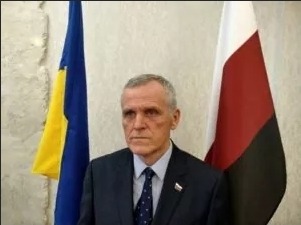
Sires Bolaen (Syres Boliayen), Inyazor (Chief Elder) of the Erzya people. Photo: open source
“Within the past 30 years, the Ezrya have been turned from a nation of a few million people into a small ethnic group on the brink of complete extinction.
Our neighbours in the Idel-Ural region – Mokshans, Udmurts, Maris, Chuvashs, Bashkirs and even Tatarsalso find themselves in a very similar position. Native peoples in Russia are forbidden to have their own political parties, or even to study their mother tongue in secondary schools. Only dancing in national costumes is tolerated. Those who stand up for their rights are persecuted as extremists and become victims of punitive psychiatry.”
The leader of the Erzya national movement is known not only for his anti-imperialist stance, but also for leading a group of Erzya volunteers fighting with the Ukrainian army. He is the co-founder of the Free Idel-Ural movement,which advocates the withdrawal of six Volga republics (Bashkortostan, Tatarstan, Chuvashia, Mordovia, Mary El and Udmurtia) from the Russian Federation and the creation of the Idel-Ural confederation.
In May 2022, Sires Bolaen once again addressed the UN Permanent Forum on Indigenous People during its 21stsession. He publicly condemned and blamed Moscow for turning federal republics and indigenous communities in Russia into socially backward and under-developed regions where local young people seek to escape poverty by joining the Russian Armed Forces.
North Ossetia, Buryatia, Tuva, Dagestan, Ingushetia, Chukotka and Idel-Ural are the regions with the highest number of dead soldiers per thousand population, he says.
Indigenous peoples gather in the League of Free Nations
In order to draw attention to the dire situation facing the indigenous people of Russia,Bashkir, Buryat, Ingush, Kalmyk, Erzya and Adyghe activistsdecided to set up a new organization – the League of Free Nations – and proceeded to issue a public announcement.
“These past few weeks, various media have been writing and talking more about the future of the Russian Federation after the Russian-Ukrainian war.
First of all, these discussions do not concern the organization of the federal subjects of the Russian Federation, but look more towards the paradigm ‘the future of the federal center is the future of Russia’.”reads the statement.
Vladimir Dovdanov, member of the Oirat-Kalmyk People’s Congressunderlines that his people have been experiencing colossal demographic catastrophes for centuries.

Vladimir Dovdanov, member of the Oirat-Kalmyk People’s Congress. Photo: Idel Realii (RFE/RL)
“…This is due to the fact that we’ve always been treated as a colony ruled by a tsar. Later [during the Soviet period-Ed], the different general secretaries used the Kalmyksas disposable objects. Today, as a result of Russia’s military aggression against Ukraine, major global political changes are taking place, and this gives us the opportunity to become a subject state, and no longer be treated as an object. I see that many other peoples in the Russian Federation have the same desire.”
In their manifesto, the indigenous leaders proclaim the principle of “presumption of subjectivity/agency”, according to which the regions do not need to appeal to anyone to grant them sovereignty in the event of the collapse of the current political regime in the Russian Federation,.
All regions, by definition, can achieve and declare full sovereignty and full independence from Moscow. Then, acting as free territories, they can decide their own future: whether they want to remain independent, unite with other regions/republics, or create a confederation of states.
Sires Bolaen, Inyazor (Chief Elder) of the Erzya peopleassures that the League of Free Nations is open to new members and invites all those who share anti-imperialist views and recognize the right of peoples to self-determination to join the organization.
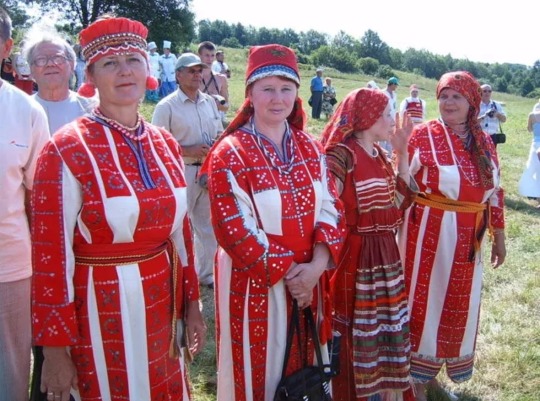
Erzya women from Penza Oblast dressed in traditional clothes. Source: Wikipedia
Activists of the Buryat national movement Dorjo Dugarov and Rajana Dugar-De Ponte, who co-founded the platform, believe that uniting different national movements around the struggle for freedom and political subjectivity will have a cumulative effect – in particular, open new opportunities for the members to convey their ideas on different international platforms.
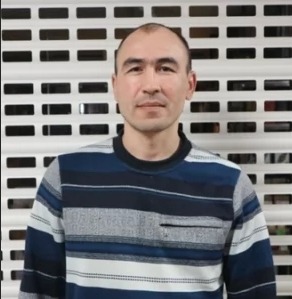
Activist Ruslan Gabbasov from Russia’s Republic of Bashkortostan. Photo: Idel Realii
Activist Ruslan Gabbasov from Russia’s Republic of Bashkortostan, who fled Russia in December 2021 fearing for his safety and obtained political asylum in Lithuania, is a representative of the Bashkir national movement.
“I believe that all constituent subjects, as well as all indigenous peoples of the Russian Federation have the right to participate in the discussion on the future of Russian territories and to exercise their right to self-determination,”said Gabbasov .
The initiators of the League of Free Nations are as follows:
Vladimir Dovdanov, Batyr Bormongaev, Erenzen Doliaev(Kalmyks, Republic of Ralmykia)
Ruslan Gabbasov(Bashkir, Republic of Bashkortostan)
Sires Bolen and Vitaliy Romashkin(Erzyas, one of the peoples of the Republic of Mordovia)
Dorjo Dugarov, Rajana Dugar-De Ponte(Buryats, Republic of Buryatia)
Today, the members of the League of Free Nations call for the establishment of direct contacts with European, Turkish and Kazakh public organizations and political parties.
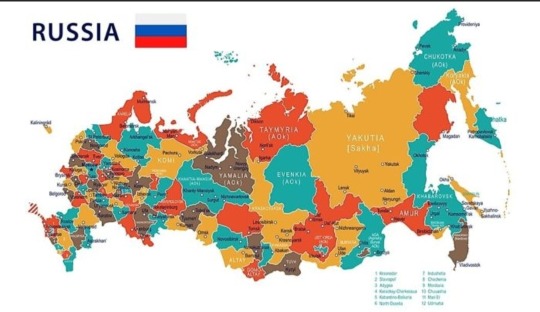
Administrative mao of the Russian Federation. Photo: World Atlas
Editor’s Note
Background
According to its constitution, the Russian Federation is divided into 85 federal subjects, 22 of which are republics. Republics are administrative divisions originally created as nation states to represent areas of non-Russian ethnicity. The indigenous ethnic group that gives its name to the republic is referred to as the titular nationality. However, due to decades of Russian migration, each nationality is not necessarily a majority of a republic’s population.
During his long years in power, Vladimir Putin has launched several centralization reforms which steadily eradicated all autonomy the republics had, with the exception of Chechnya. All bilateral agreements were abolished and in practice all power rests with the central federal government.
In fact, some experts believe that Russia has ceased to be a federation.
#indigenous#culture#indigenous russia#indigenous russian#russia#important#fypシ#colonization#fypage#landback#siberian indigenous#indigenous siberian#siberian#siberia#indigenous rights#indigenous people#freenations#League of Free Nations#russian imperialism
71 notes
·
View notes
Text
The anti-abortion movement in Russia has been gaining momentum for years. Public figures now speak frequently about the prospect of a total ban on the procedure, while less drastic restrictions are regularly imposed in regions around the country and in Russian-occupied Ukrainian territory. One of the main players in Russia’s changing abortion politics is the Women for Life foundation, established by Natalya Moskvitina. Among other things, Moskvitina believes rape victims should give birth, “true womanhood” is only possible through motherhood, having fewer than three children is a “global evil,” and abortion leads directly to war. Her foundation, which openly instructs its volunteers to employ “manipulation” and deceit when talking with pregnant women, has received grants and funding from Putin’s administration. An activist from the group Feminist Anti-War Resistance who goes by the pseudonym Aida Zhivikh recently infiltrated online chat groups run by Women for Life volunteers, dug into the organization’s operations, and spoke with experts for an article about the fight against abortion in Russia. In English, Meduza breaks down the main findings from Aida Zhivikh’s reporting, with minor additions.
Limited access
In recent years, Russian officials and activists have increasingly begun talking publicly about banning abortion, ending its coverage under government health insurance, limiting access for minors, and imposing other measures to make getting the procedure more difficult. So far, there are few real restrictions in place, but the situation has been changing. Starting in September 2024, medical abortion drugs will be classified as restricted medications, which will complicate how doctors prescribe them and limit their availability.
In some Russian regions, access to abortion is already becoming more difficult. In August 2023, Mordovia passed a law prohibiting “coercion” into abortion, and over the course of the year, several regions announced that all or many private clinics would stop providing abortion services. All this was brought about by the Women for Life foundation, started by Natalya Moskvitina (a host on the Orthodox Christian TV channel Spas) and Boris Korchevnikov (general director of Spas and host of the propaganda TV program “Life and Fate”). Moskvitina refers to the foundation as “anti-abortion.”
Women for Life started as a grassroots social movement — activists organized anti-abortion campaigns and gave lectures on pre-abortion counseling. But the organization’s work begun to change when it was registered as a charity.
Alena Buldakova, the director of the Women for Life foundation, outlined the mission of their “Hello, Mom” anti-abortion project:
Our goals are to preserve life before birth, to reduce the number of abortions; our task is to motivate a woman to joyfully give birth to healthy children and be happy and to advise doctors on how to communicate with an uncertain woman so that she makes a positive reproductive choice.
According to Natalya Moskvitina, Vladimir Putin recognized the foundation’s anti-abortion project as “one of the best” and endorsed the idea of taking abortions away from the private sector and putting them under “full state control.”
In 2022, Women for Life was awarded the top grant in a competition, five million rubles (about $55,000), to implement the “Hello, Mom” project in Mordovia. That same year, the foundation received a grant from Russia’s ruling United Russia party. Mordovia’s law banning “coercion” into abortion was developed with Moskvitina’s help as a continuation of the “Hello, Mom” project.
Now, the Tambov regional parliament is considering a “coersion” bill of its own. In Tatarstan, private clinics have started refusing to perform abortions, while in Kaliningrad, authorities are considering banning non-state organizations from terminating pregnancies. A Women for Life employee confirmed to Aida Zhivikh that the foundation is involved in these initiatives.
Eight Russian regions have officially signed agreements with the project: the republics of Komi, Mordovia, and Tatarstan, as well as the Arkhangelsk, Tambov, Tula, Novgorod, and Magadan regions. A foundation employee told Aida Zhivikh that by the New Year, they hope to have agreements signed with the Kaluga and Tver regions; local authorities have already given verbal agreement. There are also plans to implement the program in the Chelyabinsk, Voronezh, and Lipetsk regions.
‘Professional manipulators’
The Women for Life foundation has a federal hotline that receives funding from the Russian government’s “Demographics” project. This year, advertisements for the hotline were placed on the streets of several Russian cities, while its number is listed on the websites of various clinics, women’s health centers, and city departments. The hotline’s operators are not required to have a degree in psychology or medicine
Aida Zhivikh called the hotline and said she was worried about an acquaintance who got pregnant but didn’t want to give birth because she had other plans for her life, and her partner was in a combat zone. The consultant advised her to “scare” her friend by telling her that terminating the pregnancy would leave her with physical and mental health problems, and to emphasize that abortion is “murder.” The consultant also referred to the fetus as a “defenseless infant.” When asked what to do if the friend’s partner dies, the person on the phone replied that being a single mother “has its advantages” in terms of getting additional government benefits.
During another conversation with a “volunteer psychologist” in which Aida Zhivikh said she was living in a dorm and not ready to have a baby, she was told that raising a child is easier than its seems. “They don’t even start seeing right away,” said the volunteer. “What kind of parenting is there at the very beginning? What will the baby need from you? Do you think the infant will cry, ask for its mother’s breast, and think to itself: ‘Oh, is my mother financially independent or not?’ How can you even assess the quality of attention? Parents are like gods to their children until they’re seven. Everything the mother says and does is just undisputed.” The volunteer also said that at four weeks of pregnancy, the embryo looks like a “little human being,” which is not the case.
At the end, the volunteer added: “And do you know that there are serious consequences to terminating a pregnancy? Statistics show that women always develop depression or psychiatric disorders two years after an abortion. For some, it’s more pronounced — for others, less so. Plus, there are health consequences: infertility, for example, but there are other consequences as well.”
According to a certified psychologist who spoke to Aida Zhivikh under the condition of anonymity, the women using the hotline may not understand what kind of organization they’re consulting. The foundation writes that the hotline is for “pregnant women in difficult life situations.” In the U.S., crisis centers for pregnant women operate similarly, masquerading as organizations that provide assistance to women when, in reality, their goal has nothing to do with the well-being of the patient — they simply want to discourage abortion. The psychologist explained the dangers of this approach:
A woman may indeed feel lost and in need of support. The very fact that she’s calling the hotline shows she’s not 100 percent sure of her decision, whatever it may be. There’s nothing wrong with informing her about the government support measures for mothers. What is harmful is manipulation. The charitable foundation and the specific consultant-manipulator won’t take responsibility for this woman and her child for their whole life. In fact, they exploit the vulnerability of a confused pregnant woman for their interests, not hers.
The foundation’s strategy extends into healthcare settings; it has developed scripts for medical professionals to use when communicating with pregnant women in clinical settings. “The first thing a doctor does is congratulate the future mother,” explains Moskvitina. “He gives them a brochure about all kinds of assistance — from the state, regional government, non-profit organizations, from business.”
Volunteers learn to dissuade women from having abortions in chats rooms, on forums, and on social networks. During the training sessions, the foundation’s “psychologist,” Irina Bochkovskaya, openly called the work manipulation:
It's important to challenge the [women's] perceptions. If someone writes: ‘I don't want a child,’ it doesn't mean that we shouldn’t try. We can give this child a chance. So, she writes she doesn't want it. But what's her situation? Did she ever want to become a mother? And why does she think she’ll get another chance to be pregnant? We’re shaking up perceptions here, and this is the special beauty of manipulative work with people. Ultimately, you must become professional manipulators — people capable of changing another person’s perceptions, opinions, and desires. As scary as it may sound, that’s what it is, in fact.
Every day, trained volunteers are sent links to posts made by women considering abortion, including those who have been raped or have medical reasons for terminating a pregnancy. In the volunteers’ chat, they’re advised to leave comments that would nudge the woman towards “preserving life.” They ask people to like their comments so that the algorithm favors them, or so they get a “top comment” badge.
Some volunteers make up stories that sound like those of the women posting, while others make blatant manipulative and intimidating comments that can induce feelings of guilt and fear. They also misrepresent emergency and oral contraceptives as abortion methods.
The foundation considers those who support a woman’s right to choose as advocating for abortion. Those working for the foundation are convinced that some of these people are “Satanists” and “on the payroll of Western countries.”
Womanhood only through motherhood
Natalya Moskvitina’s personal stance is also noteworthy. She believes that abortions should be banned at the legislative level, “just like drug addiction, prostitution, and pedophilia.” In her view, informing people about contraception is promoting “lust,” and women who become pregnant from rape should give birth. Moskvitina holds that a woman “only becomes a woman when she becomes a mother.”
All women reach self-realization through motherhood. The most important priority, the natural need of a woman, is motherhood. And naturally, there shouldn’t be just one child: it’s very difficult with only one. With the second, it's more or less possible to manage in life, but the real joy starts with three. […] A woman truly feels like an individual only when she, having already had children, can throw energy into her own creation. That’s after the third child. Women nowadays deprive themselves of these blessings when they choose to have fewer children or an abortion, which is a monstrous global evil. This evil can’t be justified by anything at all.
According to Moskvitina, the prevalence of abortions provokes wars:
We looked at the demographic map to see where the worst [situation] regarding abortion is in the CIS countries. And we saw that it’s Donetsk and Luhansk. You look at this and see what’s happening now, and you understand: maybe it had to be this way. If we kill our children — and this is a war that isn’t visible — then later comes the actual war.
Every week, with the support of the Women for Life foundation, “anti-abortion prayer services” are held at the Alexander Nevsky church at the Moscow State Institute of International Relations. During one of these services, priest Fyodor Romanenko also linked abortion to war:
It’s important for us to pray that our whole land will be rid of this. Because this is one of the answers to the question of why our great, mighty, rich country lies not exactly in ruins, but in a very strange state… when it cannot use its power or its resources, when everything is going wrong. It’s precisely because abortions continue in this country. Many ask why the Lord doesn’t now give us great military leaders like Prince Alexander Nevsky, Dmitry Donskoy, Alexander Suvorov. Why we don’t now have great scientists and poets. The Lord sends them – but not all of them are allowed to be born.
If you or someone you know has been a victim of rape or sexual assault, please reach out to one of the following resources for support:
Rape, Abuse & Incest National Network (for U.S. readers)
Rape Crisis Network Europe (for E.U. readers)
Canadian Resource Centre for Victims of Crime (for Canadian readers)
20 notes
·
View notes
Text
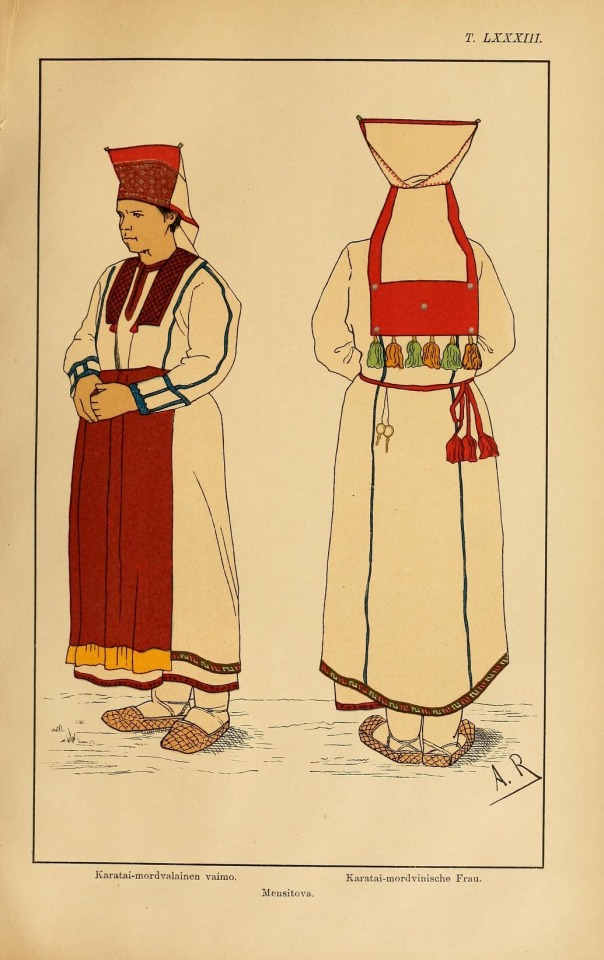
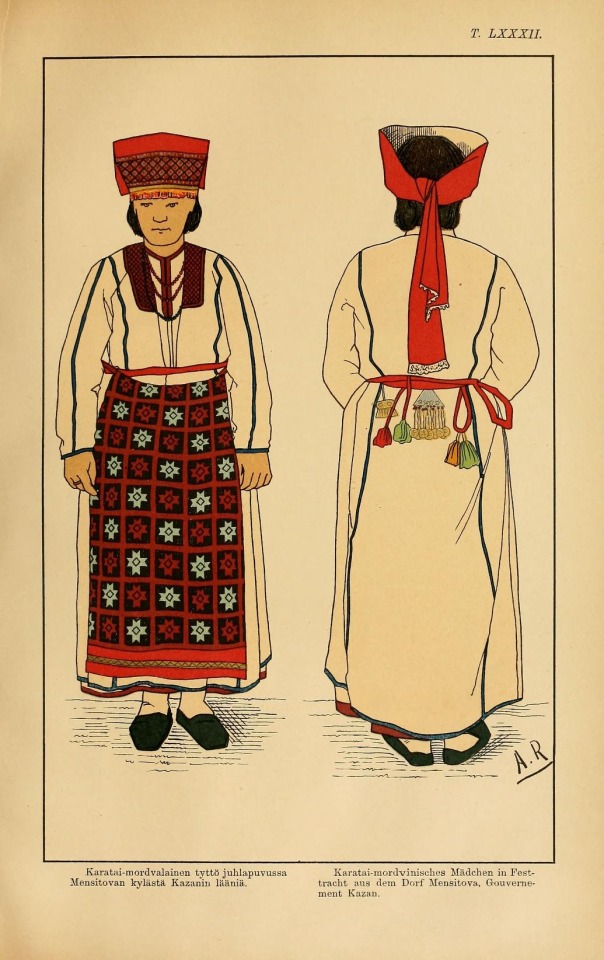
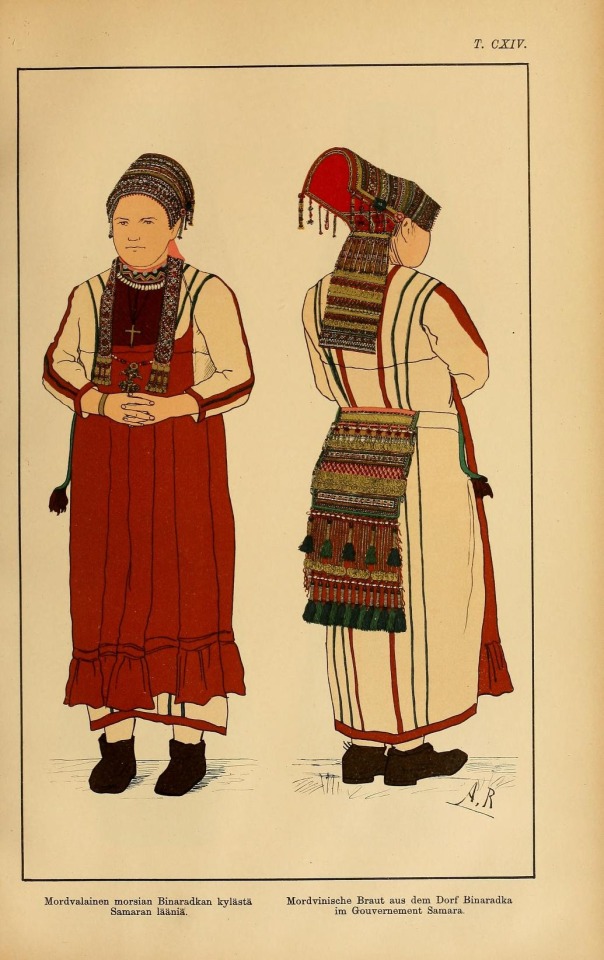
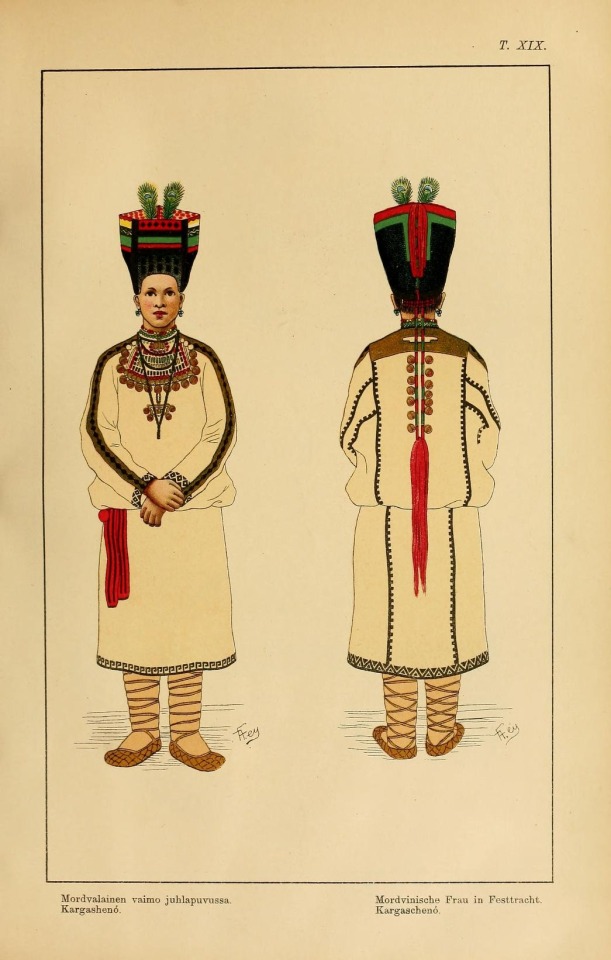
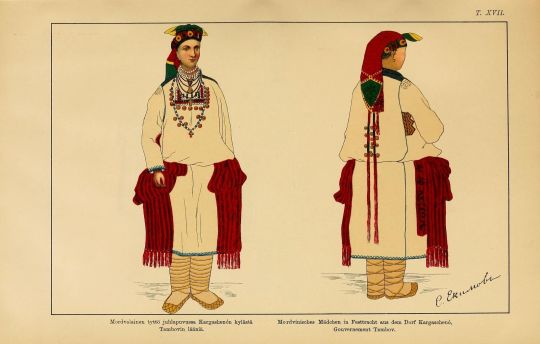
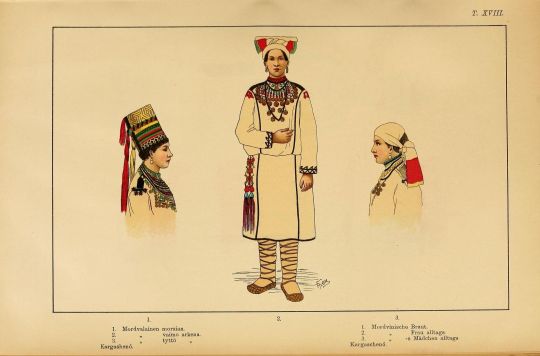
Mordovian female costume. 1899
Мордовский женский костюм. 1899
from Mordvalaisten pukuja kuoseja by Axel Olai Heikel
#non-russian#indigenous russian#indigenous russia#Finno-Ugric#finno-ugric#Mordovia#Мордовия#Mordovian culture#Культура Мордвины#reference
79 notes
·
View notes
Photo
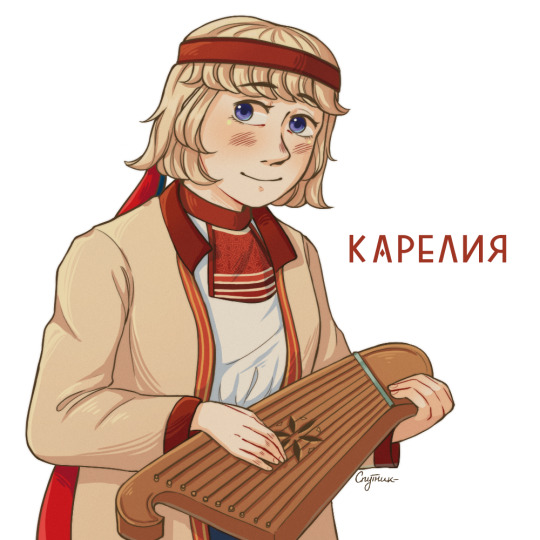



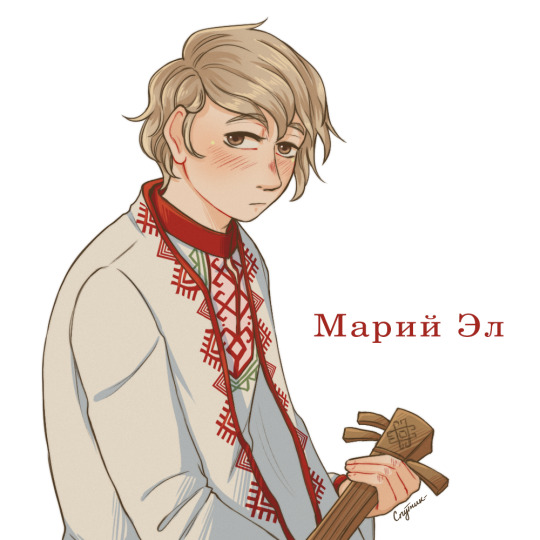

I'm having a lot of fun with region personofication, so today I desided to present my designs for some finno-ugric regions of Russia: Karelia, Komi, Murmansk, Mordovia, Mari El and Udmurtia
33 notes
·
View notes
Text

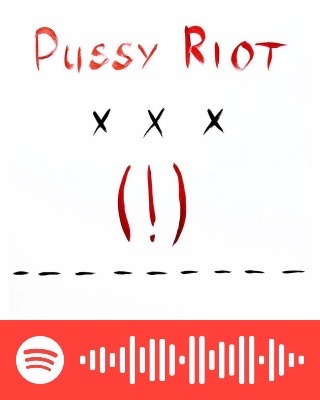
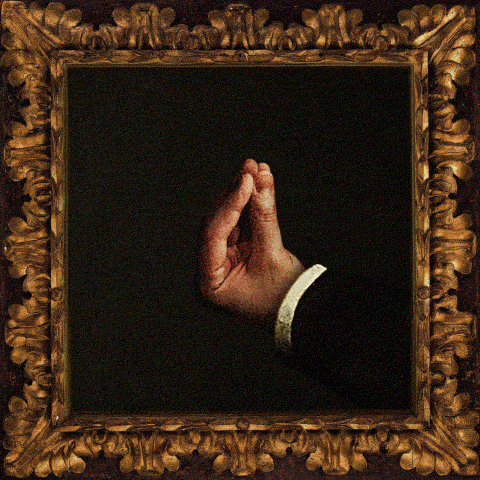


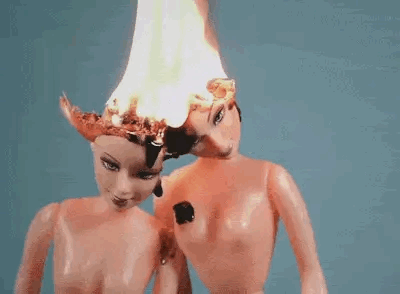


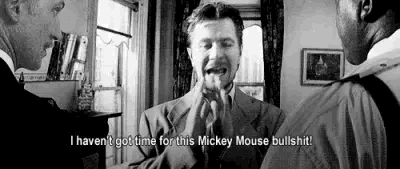
𝙵𝚞𝚌𝚔 𝚢𝚊 𝙿𝚞𝚝𝚒𝚗 𝚟𝚎𝚛𝚢 𝚖𝚞𝚌𝚑 👉🏾🖕🏾👈🏽
Organs, organs, organs, organs
Organs in cassocks and organs in uniform
Organs, organs, organs, organs
Organs, organs, organs in uniform
Female orgasm encounters obstacles
Shoulder straps and icons replace us with strap-ons
Mizulina stubbornly prohibits condoms
Agony, spasm, sound of a falling crown
The country has worse neuroses than Anna O.
The Duma is thoughtless, the laws are incompetent
No economy or defense
And there is: Lubyanka, camp, handcuffs, fences
Bastrykin, Sechin, swindlers, thieves
Iron curtains, feeders, latches
Pre-trial detention center corridors, tails chords
In the land of the avant-garde there are sad faces and freaks
In Mordovia I hone my ambition
Dry beach package in a Stolypin carriage
Muzzle guards
Organs, organs, organs, organs
Organs in cassocks and organs in uniform
Organs, organs, organs, organs
Shoulder straps on heads and shoulder straps on zones
Topol-M replaces the organ for the president
Freedom is no longer better than unfreedom
And when instead of dicks they bring tanks into the city
I refuse to be a proton
The theater ended, the wars began
I'm a grandmother who received organs.
However, fuck you, gentlemen from the organs
I deny you, your Putin jargons
You never know which run will be your last groan.
Organs, organs, organs, organs
Organs in cassocks and organs in uniform
Organs, organs, organs, organs
Organs. I'm lighting up the Bickfords
Organs
Organs in uniform
Organs in uniform
Organs in uniform
Organs
Organs @invincible-selfxmade-punk
Organs by Pussy Riot
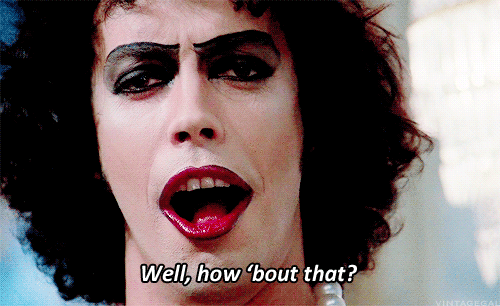
#Punks aren’t dead#gif mood board#mood in between#11/2023#pussy riot#feminism#Punk#punks#female punk#fuck putin#peace in the Ukraine 🇺🇦#exploring music#international beats#track of the day#x-heesy#fucking favorite#music#now playing#spotify#music and art#russia#mafia#illegal legal#legal illegal#kill all politicians#p e a c e
8 notes
·
View notes
Text
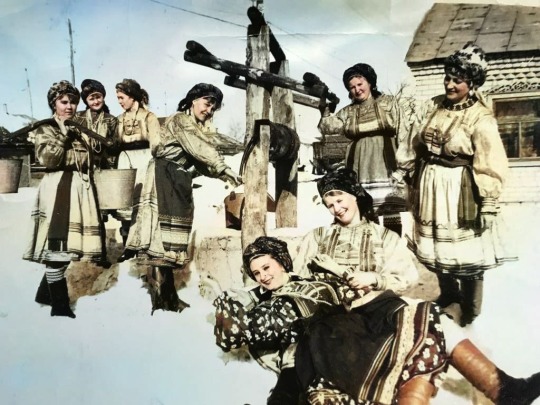
Mokshans from Staraya Terizmorga (Sire Terizmorga) village of Krasnoslobodsky uyezd of Penza Gouvernate (modern Staroshaygovsky district of Mordovia).
3 notes
·
View notes
Text
Nov 17 (Reuters) - U.S. basketball star Brittney Griner has been taken to a penal colony in the Russian region of Mordovia, a source familiar with the case told Reuters on Thursday.
Russian authorities have given no information on her whereabouts for nearly two weeks, but the source said she had been taken to Female Penal Colony IK-2 in Yavas, about 500 km (300 miles) southeast of Moscow.
The colony is in Mordovia, the same region where another American, Paul Whelan, is serving a 16-year sentence in a different penal settlement after being convicted of espionage charges that he denies.
Asked about Griner's case, a U.S. State Department spokesperson said: "We are aware of reports of her location, and in frequent contact with Ms. Griner's legal team.
"However, the Russian Federation has still failed to provide any official notification for such a move of a U.S. citizen, which we strongly protest. The Embassy has continued to press for more information about her transfer and current location."
Inmates of Russian penal colonies are required to work long hours for meagre pay on tedious manual tasks such as sewing. Former prisoners and human rights groups describe conditions there as harsh and unhygienic, with little access to medical care.
Russia and the United States have discussed swapping Griner and Whelan, a former U.S. Marine, for a Russian arms dealer jailed in the United States, but no deal has materialized amid heightened tensions over Russia's invasion of Ukraine.
27 notes
·
View notes